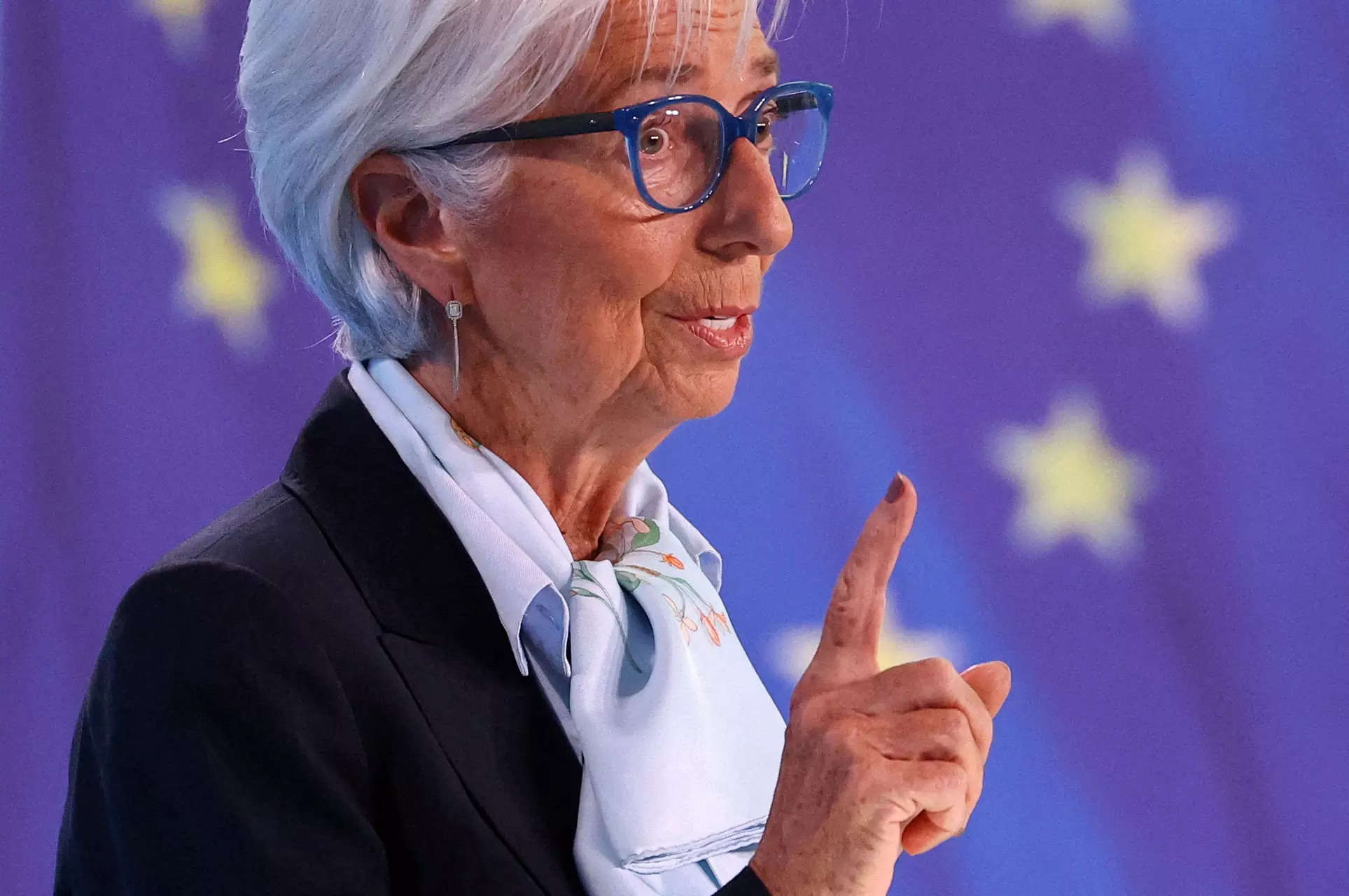European Central Bank set to cut rates for the first time since 2019 even as inflation fight continues
All 82 economists polled by Reuters expected the ECB to trim its deposit rate to 3.75% on Thursday from a record 4.0%, in what would be its first cut since 2019. ECB policymakers have clearly telegraphed their intention to lower borrowing costs after seeing inflation in the 20 countries that share the euro fall from more than 10% in late 2022 to just above their 2% target in recent months.
FRANKFURT - The was all but certain to cut from record highs on Thursday and was likely to acknowledge it had made progress in its battle against high , while also stressing the fight was not yet over.policymakers have clearly telegraphed their intention to lower borrowing costs after seeing inflation in the 20 countries that share the euro fall from more than 10% in late 2022 to just above their 2% target in recent months.
The broad-based decline was seen as more than enough for the ECB to begin undoing the steepest streak of interest rate hikes in its history, which were a response to spiralling prices in the wake of Russia's invasion of Ukraine.
Now, the ECB will join the central banks of Canada, Sweden and Switzerland in cutting rates and moving well ahead of the influential .
But what had looked like the start of a major easing cycle only a few weeks ago now appeared more uncertain amid signs that inflation may prove stickier than expected in the euro area, as has been the case in the United States.
This meant that ECB President and her colleagues were unlikely to commit to a further rate reduction at their July meeting or beyond just yet.
Instead, they were expected to stress any further move would depend on incoming data and that borrowing costs needed to remain high enough to keep a lid on inflation.
"The cut will set the new direction for but with economic momentum outperforming expectations and domestic inflation proving sticky in 2024, the ECB can afford to take things slowly and let the data set the parameters of the easing cycle," economists wrote in a note to clients.
All 82 economists polled by Reuters expected the ECB to trim its deposit rate to 3.75% on Thursday from a record 4.0%, in what would be its first cut since 2019.
But not all think it is a good idea.
Gabriele Foa, a portfolio manager at , said the cut "may soon be viewed as a policy mistake" and economist Greg Fuzesi said it was "oddly rushed".
"The cost of waiting until September appears low while the benefit of getting more clarity on the inflation outlook appears high," Fuzesi added. "For some reason, the ECB Governing Council, however, seems already to have decided many weeks ago to deliver a June cut."
NO DECLARATION OF VICTORY
ECB chief economist Philip Lane set the tone last week, saying that a would be no "declaration of victory" and the pace of further reductions would depend on progress on domestic inflation and demand.
Most economists still expected two further rate cuts by the end of the year and money markets priced in between one and two more moves, possibly in September and December.
But some stronger-than-expected data over the last few weeks fuelled fears of a more difficult "last mile" on the way to 2% inflation than the ECB has been predicting -- a concern often expressed by influential board member Isabel Schnabel.
inflation rose more than predicted in May, with price growth in the services sector, which some policymakers singled out as especially relevant because they reflect domestic demand, rebounding to 4.1% from 3.7%, according to preliminary estimates.
This was likely to mirror larger-than-expected increases in wages in the first quarter of the year, which boosted consumers' battered disposable income after years of below-inflation pay hikes.
"We're still confident about services inflation coming down but there's definitely a last-mile dynamic at play here," Paul Hollingsworth, an economist at BNP-Paribas, said.
Economic activity surveys have also pointed to a stronger-than-expected rebound by the economy after more than a year of stagnation, which is likely to force the ECB to increase its GDP forecast for this year when it publishes its new projections on Thursday.
These were still expected to point to inflation returning to the ECB's 2% goal next year, keeping the on course for more easing barring new inflation surprises.
"If anything, the five quarters of stagnation in the euro zone economy from autumn 2022 to the end of 2023 suggest that the ECB may have overreacted with its rate hikes," Holger Schmieding, an economist at Berenberg, said. "Seen from this angle, somewhat lower rates make sense." (Editing by Toby Chopra)
Source: Stocks-Markets-Economic Times
